Latest News
Peace won’t be found in silence or fear, says AIHRC chair
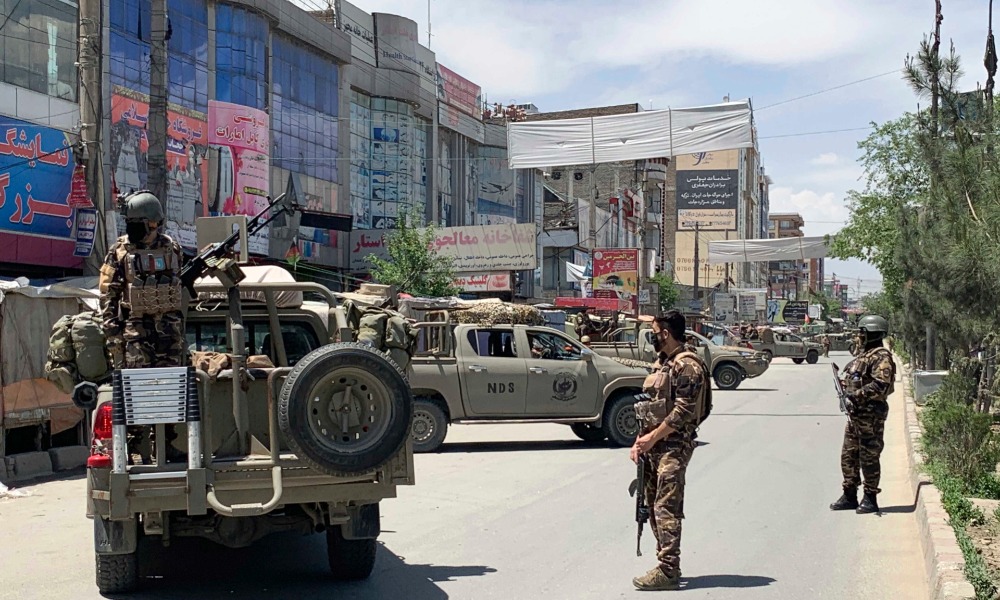
One year ago today – February 28 – Afghans were buoyed by the signing of the US-Taliban agreement in Doha, which they hoped would bring peace. Instead, today, a year later, targeted killings have spiked leaving thousands of civil society activists, government officials, journalists and even doctors fearing for their lives.
Shaharzad Akbar, the chair of the Afghanistan Independent Human Rights Commission (AIHRC), wrote in an op-ed piece, published in the Washington Post, that “every night, I lie awake wondering who will be next. I think of a colleague whose teenage son checks his car every morning for magnetic bombs. A husband saying goodbye to his wife as she leaves for work, wondering if today will be the day she is killed on her way to the office.”
She said that a year after the deal was signed, instead of ushering in peace “one of the most tangible changes has been an increase in targeted killings, mostly unclaimed, that have created an environment of terror and fear.
“There were nearly three times the number of such attacks in 2020 compared with 2019; the casualties include the deaths of 11 human rights defenders and media workers in the past five months,” she wrote.
Akbar pointed out that some of Afghanistan’s most important gains, its activists, community leaders and scholars, are being silenced at a time when, after the US-Taliban deal, Afghans had hoped for a reduction in violence and for inclusive intra-Afghan negotiations.
“While the Taliban denies involvement in most targeted attacks, it benefits from the environment of fear and hopelessness around the peace process and the lack of critical voices demanding an inclusive peace.
“This reign of terror for Afghan civilians must end in order for a real peace process to begin,” Akbar wrote.
She also pointed out that as the United States reviews its Afghanistan policy, it still has leverage — including the existing UN sanctions on the Taliban, the Taliban’s desire for international recognition and legitimacy, and the presence of international forces in Afghanistan — to help stop these attacks and encourage a ceasefire and an inclusive peace process.
She stated that her AIHRC colleagues know what it is to feel terror as the organization has lost three of its staff members in the past 18 months.
Akbar pointed out that these high levels of violence are forcing families to flee the country.
“Every day I hear of another friend, journalist, academic, women’s rights activist or businessperson leaving the country. Their departures are creating an absence that will take another generation to fill. Those who can’t leave feel silenced by fear and have little chance of influencing the peace process,” she wrote.
Akbar also noted that it has been years since the last mass demonstration by Afghans – “for fear of attacks”.
She also said that following the recent wave of assassinations, public debate has closed down, even in the virtual sphere. “This is even more true beyond Kabul, in rural areas where conflict has been the most savage.”
Akbar stated that while US President Joe Biden’s team has signaled that it will withdraw its last troops as per the agreement with the Taliban, if the group reduces violence. she said: “This is welcome but not enough. Even with overall violence levels down, targeted killings are silencing the voices needed to build pressure for peace.”
“The United States does not want Afghanistan to collapse into a catastrophic civil war as soon as it withdraws, after 20 years of assistance. But the narrow focus of the US-Taliban deal ignored the wider needs of the peace process, including the importance of civic space and the protection of civilians. This approach should be urgently reconsidered in Biden’s review,” she said.
Akbar stated that public participation is not a bonus that is “nice to have” but rather an inclusive process that builds momentum for peace and boosts the credibility of the process.
Bringing traditional and nontraditional civil society voices to the table from across Afghanistan will bring a sense of urgency and bottom-up pressure on the parties.
She also stated that public participation can best be guaranteed through a ceasefire and that the US and its allies should utilize their leverage with both sides and the region to continue to push for an interim and immediate ceasefire that will create an opportunity for national engagement.
“An immediate end to targeted killings, a ceasefire and the restoration of civic space will allow for broader inclusion in the talks, reviving hope and confidence in the process,” she said.
Akbar stated that the US can encourage the Taliban and the Afghan government to create this enabling environment for peace. Afghans could then force hope back onto the table.
“We will not find peace in silence and fear,” Akbar stated.
Latest News
Ministries of Public Health and Higher Education sign cooperation agreement
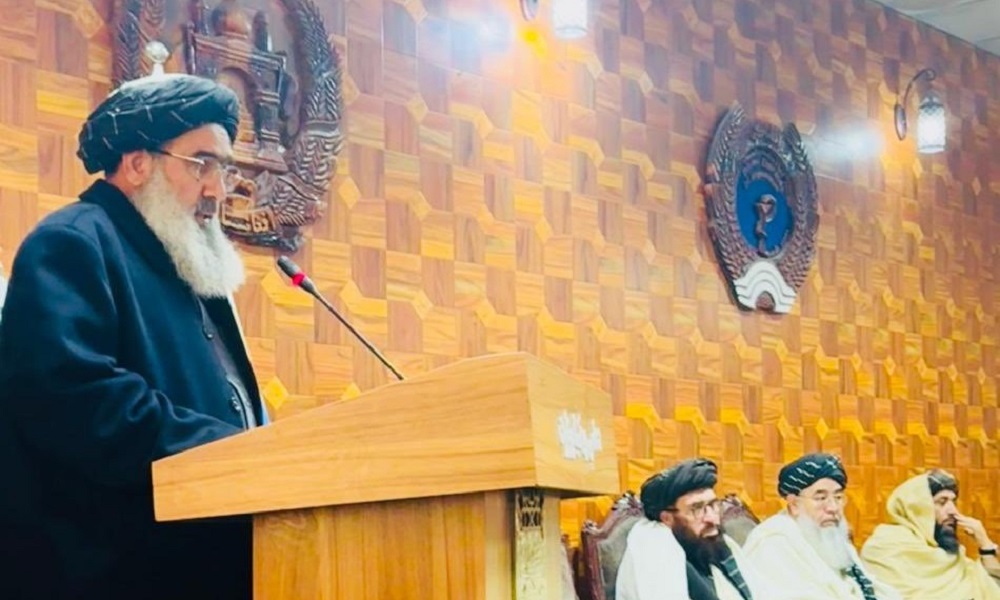
The Ministry of Public Health announced on Tuesday it has signed a cooperation agreement with the Ministry of Higher Education aimed at expanding scientific, research, educational, and technical cooperation.
At the signing ceremony held in Kabul, Noor Jalal Jalali, Minister of Public Health, said that the agreement would lead to significant improvements in the capacity-building of students and doctors, ensure that research is conducted based on evidence, and enable the collection of accurate data.
Meanwhile, Neda Mohammad Nadeem, Minister of Higher Education, described the agreement as beneficial to the public and to both institutions, stressing the need to train individuals at universities who can contribute to social development and make the country self-sufficient in the public health sector.
Latest News
UNAMA holds new round of Working Group meetings on counter-narcotics and private sector
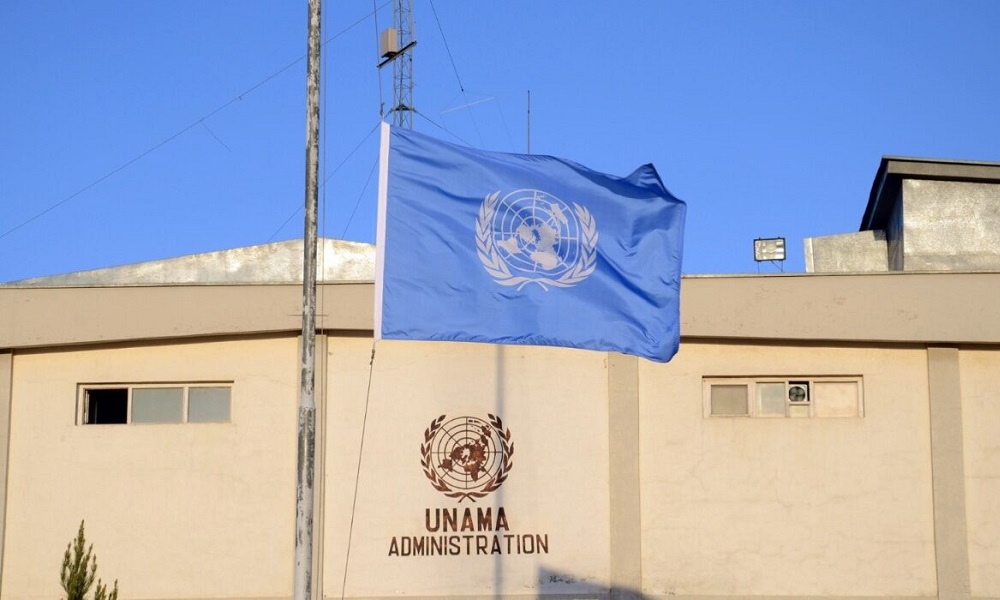
The United Nations Assistance Mission in Afghanistan (UNAMA) has convened a new round of Doha Process Working Group meetings focusing on counter-narcotics and private sector development.
The meetings, held in Kabul on February 3 and 9, brought together representatives of UN member states and international organizations, officials of the Islamic Emirate, and subject-matter experts.
According to UNAMA, discussions in the counter-narcotics working group centered on efforts by Islamic Emirate authorities and the international community to support alternative livelihoods for Afghans previously dependent on poppy cultivation and the illicit opium trade. Participants also reviewed drug-use prevention and treatment initiatives, as well as law-enforcement measures to curb narcotics production and trafficking.
The private sector working group focused on job creation and entrepreneurship, with particular attention to women’s participation in the private sector, market integration, access to finance, and the development of private banking and financial infrastructure.
UNAMA said both working groups identified priority areas for enhanced engagement and explored more effective and sustainable approaches to supporting Afghan men and women. Participants also examined the linkages between the two areas, noting that private sector development is a key source of livelihoods, while counter-narcotics efforts contribute to Afghanistan’s economic and social stability.
The working groups were established following the third Meeting of Special Envoys held in Doha, Qatar, in June and July 2024, in line with recommendations of the Independent Assessment endorsed by the UN Security Council. The process aims to promote more coherent, coordinated, and structured engagement with Afghanistan’s de facto authorities for the benefit of the Afghan people.
UNAMA added that stakeholders engage in the working groups on an ongoing basis, with full-format meetings convened periodically. Since their establishment, the groups have improved information-sharing, helped mobilize additional resources, and facilitated expert exchanges to strengthen support for the Afghan people.
Latest News
Economic Commission approves national policy for development of agriculture

At a regular meeting of the Economic Commission chaired by Mullah Abdul Ghani Baradar, Deputy Prime Minister for Economic Affairs, the National Policy for the Development of the Agriculture and Livestock Sector was approved.
According to a statement from the deputy PM’s office, the key objectives of the policy include the mechanization of the agriculture and livestock sector; development of agricultural, irrigation, and livestock research and extension systems; management of irrigation systems; support for investment in these sectors; and ensuring public access to high-quality agricultural and animal products.
During the same meeting, the development plan for the fish farming sector was also approved.
Under this plan, through private sector investment, 7,700 small, medium, and large fish production and farming facilities will be established on 6,500 hectares of land in various parts of the country.
The statement added that the implementation of this plan will create direct employment opportunities for 50,000 people and indirect employment for 250,000 others.
-

 Latest News3 days ago
Latest News3 days agoAfghanistan to grant one- to ten-year residency to foreign investors
-

 Sport4 days ago
Sport4 days agoIndonesia shock Japan to reach historic AFC Futsal Asian Cup final
-

 Sport3 days ago
Sport3 days agoIran clinch AFC Futsal Asian Cup 2026 in penalty shootout thriller
-

 Latest News3 days ago
Latest News3 days agoAfghanistan says Pakistan is shifting blame for its own security failures
-

 International Sports2 days ago
International Sports2 days agoWinter Olympics gain momentum as medal table takes shape
-

 Latest News3 days ago
Latest News3 days agoTraffic police receive new cars
-
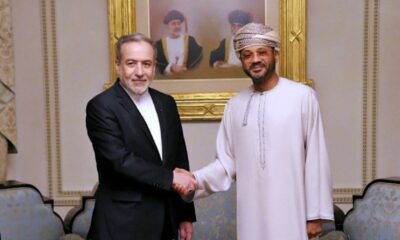
 Regional4 days ago
Regional4 days agoIran’s FM calls Oman-mediated talks with US ‘good start’
-
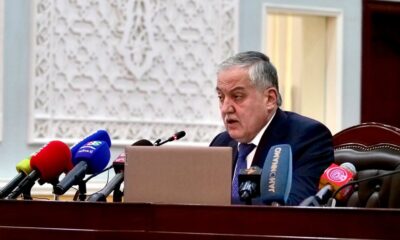
 Latest News2 days ago
Latest News2 days agoTajik foreign minister urges international community to help Afghanistan address its challenges
























